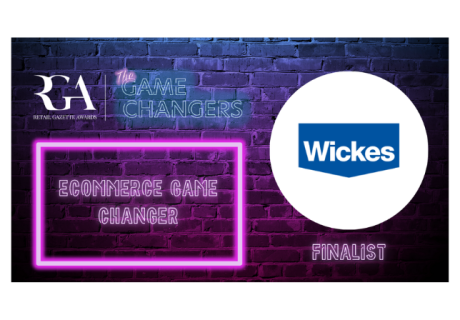In 2022, DTC could open a lot of doors.
For brands, a DTC channel creates an opportunity to gain intimate knowledge of their customer base. Insight is generated directly from your brands’ customers, rather than industry averages. When partnered with intuition and experience, you can understand your customers’ behaviour better than ever before.
Jo Hyder is an ecommerce executive with 25 years of experience. She has been working in digital since the late 90s, including working in-house with Coca-Cola. She offers some advice and experience from her extensive career.
One of the most frequently asked questions in the DTC arena is ‘what’s the one thing you need to succeed?’ My answer would always be the same – unwavering belief and support from the top of your organisation.
Having C-Suite buy-in is key. DTC isn’t something you succeed at overnight. You’re going to need to be patient, because it’s a journey – during which you need to continuously experiment, fail and learn. You learn as much through failure, if not more, as you do from success.
Having C-Suite buy-in is key. DTC isn’t something you succeed at overnight.
But it is also very difficult to plot a path towards success. DTC can seem like a lot of time and personnel spent, for little financial return. You need a plan, and a proper pitch to get the buy-in that you need. Here are three tips that I have learnt during my career.
What is the objective?
Think carefully about your goals and outcomes for a DTC project. As a business, what are you aiming to achieve with a direct channel?
For example are you:
· A brand, who wants to better reach their super customers?
· A wholesaler, exploring new markets beyond your current retail partners?
· A manufacturer, who is looking to innovate their business model?
Whilst a DTC channel will deliver some revenue, profit is unlikely to be the number one reason for starting an ecommerce site. DTC channels will not create a new market segment, but it might help you engage dedicated segments.
Whilst a DTC channel will deliver some revenue, profit is unlikely to be the number one reason for starting an ecommerce site.
Think about CPG. Customers typically discover new products in a retail setting. When online, purchasing behaviour is heavily reliant on buying favourites. Introducing new products or creating brand switch is a harder challenge online that it is in-store. Online purchase behaviour is also typically basket-driven. Generally customers don’t buy single items, but rather bulk-buy or in packs.
So if you are not driving new sales, what does a DTC channel do? Think about it like a retailer. What is the most valuable thing about customers who go out and buy on the high street? Their behaviour. A DTC channel, more than profit, will give you new levels of customer insight.
Who are Your Customers?
To understand the opportunity that DTC provides, you need to think like the retailers. What do retailers have that brands want? First party data. Information that they gather themselves from their own storefronts, and their own customers.
Retailers know their shoppers intimately. They know what, how and when customers purchase. They also know about any brands’ products intimately, perhaps even better than brands do themselves.
That is the value that DTC can provide. Brands can gather the first-party insights that their retail partners already gather. You gain direct access to your most dedicated customers, and those who are fanatical[JH1] about your brand. You can also test products on this dedicated market. You can see if your fans buy, before distributing them to a wider market.
You have complete control of the store and the experience. You’re not constrained by shelf space. You can sell exclusive line extensions, gift packages, personalised products. You can choose to surprise and delight, tell brand stories and create a community around your brand.
That is the value that DTC can provide. Brands can gather the first-party insights that their retail partners already gather.
Combine unique products with a testing mindset, a DTC site can provide global brands with a sandbox; a place to test new ideas without the need to commit massive resources to products that might not work. You can also measure the response to all the ideas that do work.
And of course, brand fans can provide valuable feedback on product development, proposition development, pricing and much more. The pace at which this insight is delivered is key too, enabling brands to develop and iterate faster.
DTC channels will not necessarily make you rich, but they will teach you a lot.
Who is your Competition?
There is another question that DTC channels can help to answer. Who is your competition?
Inevitably other brands in your sector will compete for attention. So why would a shopper visit you? How do you earn share-of-wallet? What experience and product range are you going to offer that warrants your audience spending time and money with you and how will you attract shoppers to your store?
DTC will require a marketing strategy. The Covid-19 pandemic created opportunity in the retail sector through scarcity. What can we learn from that experience, and what can we replicate? The creation of much-hyped limited editions only available through direct channels.
As previously mentioned, this could be a new product line, or a variation, or something completely different. Your DTC channel will let you ‘take the temperature’ of your new product idea, and measure customer’s response.
DTC will require a marketing strategy.
As I joined Good Growth, there was some buzz around our latest work with Kraft Heinz. We helped to launch a limited-run product on their site. Heinz launched a Christmas Dinner in a can to highlight the expense of traditional Christmas dinners, in the face of rising food prices. After launching at midnight, all 500 units sold within 2 hours.
Conclusion
Adding a DTC channel to your operation is exactly that: it’s an addition. DTC will not transform your business overnight. But it will help you prepare for the future of retail. You will still need to invest in your existing retailer relationships, these are still as important as they always were.
Supporting and understanding at a senior level about what you’re trying to achieve, and why, is critical. DTC is less about adding a revenue line to the balance sheet and more about gaining information and advantage to grow and propel your business forward, directly informed by your shoppers and if this is understood and supported, then you’ve got the right conditions for success.




